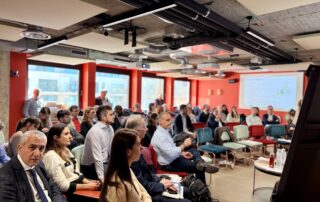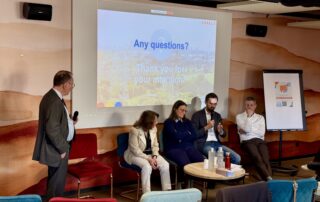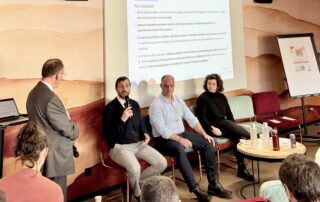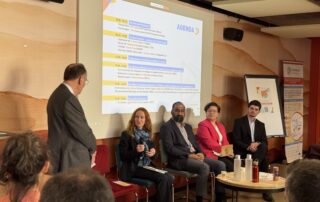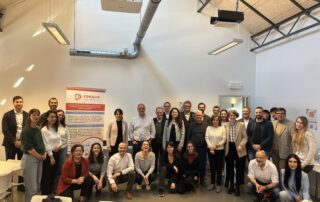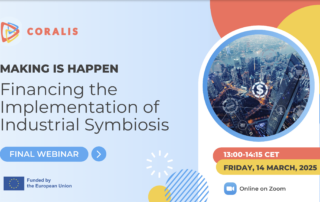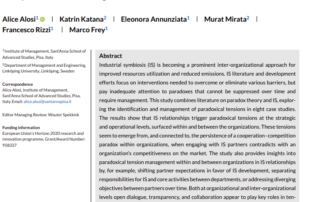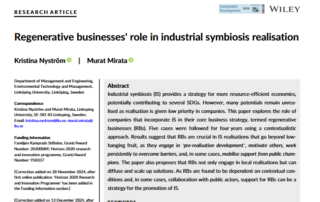Advancing Sustainability Through Industrial Symbiosis: A Technoeconomic Approach Using Material Flow Cost Accounting and Cost–Benefit Analysis
Abstract: Industrial symbiosis (IS) involves transferring waste materials and/or energy flows between stakeholders to enhance resource efficiency and reduce environmental impacts. The success of these transactions depends on supply–demand matching, technical feasibility of waste integration
CORALIS final conference marks the project’s successful conclusion (19.03.2025)
The final conference of the CORALIS project took place on Wednesday 19th March 2025 in Brussels, Belgium, bringing together stakeholders, partners and experts to celebrate the project’s achievements and discuss its position in the wider
A Risk Management Framework to Enhance Environmental Sustainability in Industrial Symbiosis Ecosystems
Abstract: Industrial symbiosis (IS) fosters collaboration between industries to exchange materials, energy, water, and by-products. It contributes to environmental and economic sustainability by reducing resource consumption, decreasing greenhouse gas emissions, and generating economic benefits. However,
CORALIS in Brussels for its last General Assembly (18.03.2025)
On Tuesday 18th March, the CORALIS consortium gathered in Brussels for the last General Assembly meeting of the project to discuss key milestones, final results achieved and lessons learnt. The presentations and discussions touched upon:
CORALIS learnings webinar #5: Financing Initiatives for the Implementation of Industrial Symbiosis (14 March 2025)
As industrial symbiosis continues to gain traction as a key strategy for decarbonising energy- and resource-intensive industries, securing appropriate financing remains one of the primary challenges for its large-scale adoption. To address this critical issue,
New Publication based on CORALIS: Managing Paradoxical Tensions in Industrial Symbiosis
Industrial symbiosis (IS) is increasingly recognised as a powerful strategy for optimising resource use and reducing emissions. However, while much attention has been given to overcoming technical and organisational barriers, less focus has been placed
Management of paradoxical tensions in industrial symbiosis
Abstract: Industrial symbiosis (IS) is becoming a prominent inter-organizational approach forimproved resources utilization and reduced emissions. IS literature and developmentefforts focus on interventions needed to overcome or eliminate various barriers, butpay inadequate attention to paradoxes
New publication based on CORALIS: “Regenerative Businesses’ Role in Industrial Symbiosis Realisation”
Industrial symbiosis (IS) offers a powerful approach to resource efficiency and circular economy transformation, yet many of its opportunities remain unrealised due to low prioritisation in companies. A new publication authored by Kristina Nyström and
Regenerative businesses’ role in industrial symbiosis realisation
Abstract: Industrial symbiosis (IS) provides a strategy for more resource-efficient economies,potentially contributing to several SDGs. However, many potentials remain unrea-lised as realisation is given low priority in companies. This paper explores the role ofcompanies that
D11.4: Cooperation and feedback with non-CORALIS intensive sectors, update 2025 (PU)
Publishable summary: This deliverable represents the roadmap for the cross-sectorial dialogue“ to search for exploiting the results in non-CORALIS sectors and to maximise the replicability of the ERL and MRL practices and tools developed in


